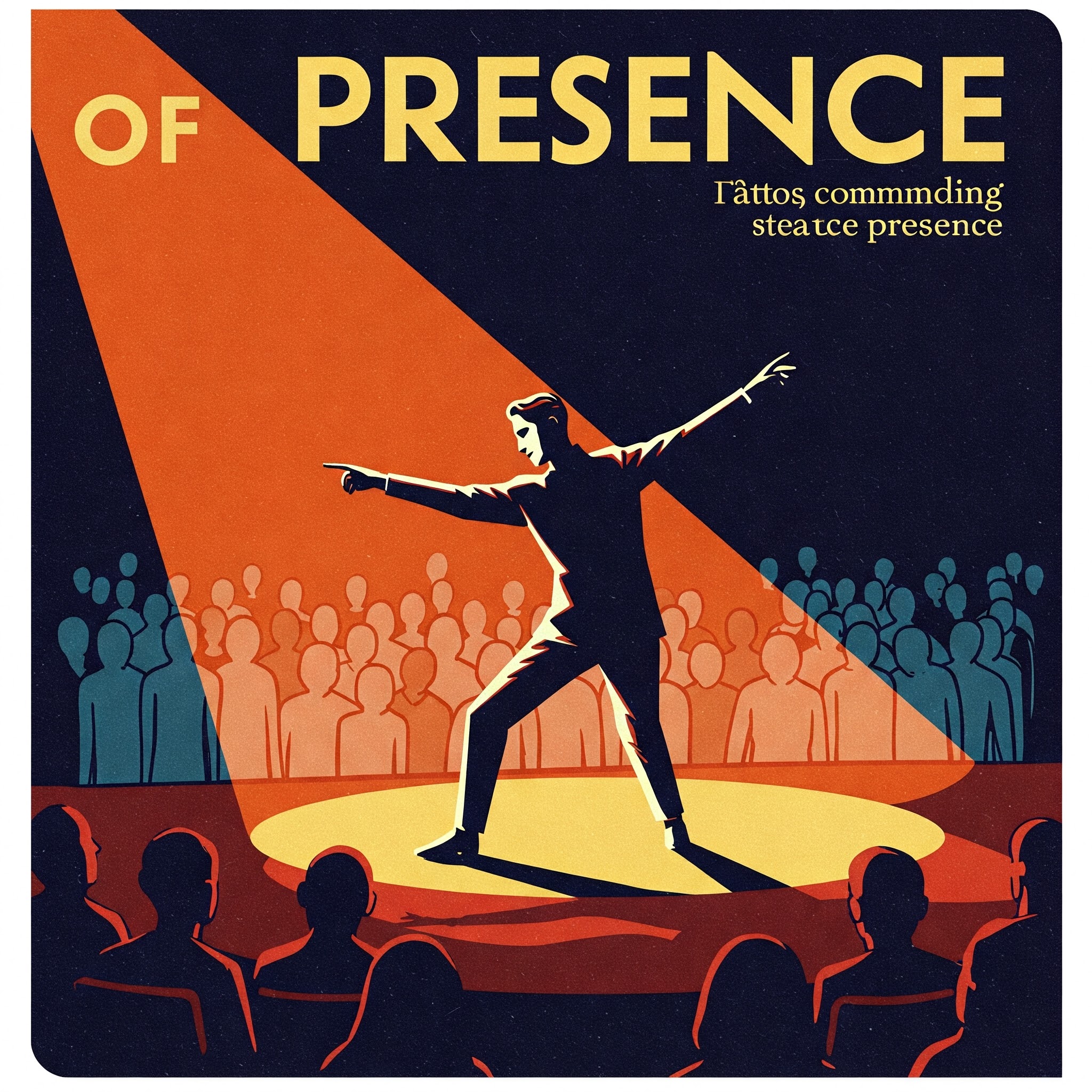Presence
Definition
The term "presence" describes the state of being in a particular place or the impression created by someone or something being present.
Parts of Speech
- Noun
Pronunciation
American English
- IPA Pronunciation: /ˈprɛz.əns/
- Respelling: PREZ-uhns
British English
- IPA Pronunciation: /ˈprɛz.əns/
- Respelling: PREZ-uhns
Etymology
The word "presence" originates from the Latin "praesentia," meaning "being at hand," derived from "praesens" (present). It entered Middle English through Old French "presence."
Derivatives
- Present (adjective, verb)
- Presence of mind (noun phrase)
- Omnipresence (noun)
- Absence (antonym derivative)
- Presentable (adjective)
Synonyms
- Attendance
- Existence
- Appearance
Antonyms
- Absence
- Nonappearance
- None
Usage
The term "presence" is used to describe physical or metaphorical existence. For example, "The teacher’s presence in the classroom created a calm environment" or "The presence of a historic building adds charm to the town."
Related Terms
- Attendance: Being present at an event or place.
- Existence: The state of being real or existing.
- Aura: The distinctive atmosphere or impression surrounding a person or thing.
Detailed Definitions
Noun
- The state of being in a particular place: Refers to the physical existence of a person or object in a location.
- Example: "Her presence at the meeting was highly anticipated."
- An impression or effect created by being present: Refers to the influence or atmosphere associated with someone or something.
- Example: "The actor’s commanding presence captivated the audience."
- Spiritual or abstract existence: Refers to a perceived or intangible existence, often in a religious or emotional sense.
- Example: "They felt the presence of their ancestors during the ceremony."
presence



🇨🇳 Mandarin
- 在场 (zàichǎng)
- IPA: /tsaɪ˥˩ʈʂʰaŋ˨˩˦/
- English respelling: zai-chang
- 存在 (cúnzài) - existence, presence
- IPA: /tshwən˧˥tsaɪ˥˩/
- English respelling: cun-zai
🇮🇳 Hindi
- उपस्थिति (upasthiti)
- IPA: /ʊpastʰɪt̪i/
- English respelling: u-pas-thi-ti
- हाज़िरी (haaziri) - attendance, presence
- IPA: /ɦaːziːriː/
- English respelling: ha-ziri
🇪🇸 Spanish
- Presencia
- IPA: /pɾeˈsenθja/
- English respelling: pre-sen-thia
- Asistencia - attendance, presence
- IPA: /asɪˈstenθja/
- English respelling: a-sis-ten-thia
🇫🇷 French
- Présence
- IPA: /pʁezɑ̃s/
- English respelling: pre-zans
- Assistance - attendance, presence
- IPA: /asistɑ̃s/
- English respelling: a-sis-tans
🇸🇦 Modern Standard Arabic
- حضور (haduur)
- IPA: /ħaˈduːr/
- English respelling: ha-dur
- وجود (wujood) - existence, presence
- IPA: /wuˈʔuːd/
- English respelling: wu-'ood
🇧🇩 Bengali
- উপস্থিতি (upasthiti)
- IPA: /upost̪hit̪i/
- English respelling: u-po-sthi-ti
- অবস্থান (obsthaan) - location, presence
- IPA: /ɔbstʰan/
- English respelling: ob-sthan
🇷🇺 Russian
- Присутствие (prisutstvie)
- IPA: /prʲɪsʊtstvʲɪjɪ/
- English respelling: pri-sut-stvi-ye
- Наличие (nalichie) - availability, presence
- IPA: /nɐˈlʲit͡ɕɪjə/
- English respelling: na-li-chi-ye
🇵🇹 Portuguese
- Presença
- IPA: /pɾɨˈsẽsɐ/
- English respelling: pre-sen-sa
- Assistência - assistance, presence
- IPA: /ɐʃiʃˈtẽsjɐ/
- English respelling: a-shi-sten-sia
🇮🇩 Indonesian
- Kehadiran
- IPA: /kəhadiran/
- English respelling: ke-ha-dir-an
- Ada - existence, presence
- IPA: /ada/
- English respelling: a-da
🇩🇪 German
- Anwesenheit
- IPA: /ˈʔanveːzənhaɪ̯t/
- English respelling: an-ve-zen-heit
- Präsenz - presence
- IPA: /ˈpʁɛːsɛnt͡s/
- English respelling: pre-sents
🇯🇵 Japanese
- 出席 (shusseki)
- IPA: /ɕɯᵝsːe̞kʲi/
- English respelling: shu-s-seki
- 存在 (sonzai) - existence, presence
- IPA: /sõ̞nza̠i/
- English respelling: son-zai
🇻🇳 Vietnamese
- Sự có mặt
- IPA: /sɨ kɔ˧ˀ˨ʔ məːt˧˥/
- English respelling: su co mat
- Tồn tại - existence, presence
- IPA: /tɔn˧ˀ˨ʔ tʰaɪ˧˥/
- English respelling: ton tai
🇰🇷 Korean
- 출석 (chulseok)
- IPA: /t͡ɕʰul.sʌk̚/
- English respelling: chul-seok
- 존재 (jonjae) - existence, presence
- IPA: /d͡ʑo̞nd͡ʑɛ̝/
- English respelling: jon-jae
🇹🇷 Turkish
- Varlık
- IPA: /vɑɾlɯk/
- English respelling: var-lik
- Mevcudiyet - existence, presence
- IPA: /mev.d͡ʒuˈdiː.jet/
- English respelling: mev-ju-di-yet
🇵🇰 Urdu
- حاضری (haaziri)
- IPA: /ɦaːziːriː/
- English respelling: ha-ziri
- موجودگی (mojoodgi) - existence, presence
- IPA: /moːd͡ʒuːdgi/
- English respelling: mo-jood-gi





